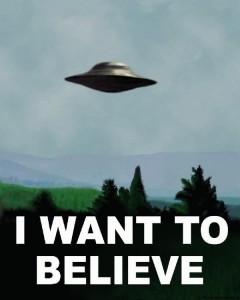Have you ever had a devil or visitor in your room or bed while dreaming? If this sounds weird, it is. I have a neighbor, whom I really like and is normal in most ways, who seriously tells me that he is often visited at night, at the house next door, by aliens. The gray ones. On a few occasions I’ve tried staying up all night to watch for them, but alas I have yet to see them near his bedroom window or hovering overhead in a ship or beam of light. This could be because I tend to nod off during these Mulder-like vigils. But it could also be because my neighbor experiences sleep paralysis and dreams of greys. While he finds these experiences pleasant and describes the encounters in lascivious ways, dream paralysis can also manifest in dreadful ways. Carla MacKinnon has artfully captured this sense in her mesmerizing short film, “Devil in the Room.”
While watching, I was reminded of the fact that these experiences, much like near-death experiences and spirit encounters, are culturally patterned and specific to time and place. Those who have them, in other words, always tend to experience them in ways that accord with dominant or widely available cultural materials. While those living in Christian-dominant cultures will often experience these things in Christian kinds of ways, those who have not been exposed to Christianity and are not enmeshed in Christian cultures have quite different experiences. With this in mind, we know that hunter-gatherers never had near-death experiences that took them to Christian heaven and they were never visited by gray aliens while sleeping. There are many ethnographic reports, however, of them journeying to ancestral hunting grounds and being visited by animal spirits.
Given these and many similar facts, one might think that these sorts of things are all in the head (and locally available cultural materials). But not Russ Douthat, erstwhile believer in the ineffable-indescribable numinous Catholic god. Douthat is predictably peeved by Barbara Ehrenreich’s sensible plea for a science that investigates what are often called “mystical” experiences:
If mystical experiences represent some sort of an encounter, as they have commonly been described, is it possible to find out what they are encounters with? Science could continue to dismiss mystical experiences as mental phenomena, internal to ourselves, but the merest chance that they may represent some sort of contact or encounter justifies investigation. We need more data and more subjective accounts. But we also need a neuroscience bold enough to go beyond the observation that we are “wired” for transcendent experience; the real challenge is to figure out what happens when those wires connect. Is science ready to take on the search for the source of our most uncanny experiences?
Fortunately, science itself has been changing. It was simply overwhelmed by the empirical evidence, starting with quantum mechanics and the realization that even the most austere vacuum is a happening place, bursting with possibility and giving birth to bits of something, even if they’re only fleeting particles of matter and antimatter. Without invoking anything supernatural, we may be ready to acknowledge that we are not, after all, alone in the universe. There is no evidence for a God or gods, least of all caring ones, but our mystical experiences give us tantalizing glimpses of other forms of consciousness, which may be beings of some kind, ordinarily invisible to us and our instruments. Or it could be that the universe is itself pulsing with a kind of life, and capable of bursting into something that looks to us momentarily like the flame.
This is precisely the kind of expansive and humble view of science that moves knowledge forward. It is also the kind of expansive and humble view of science that New Atheists almost completely lack. They seem especially deluded when it comes to what is known, or rather not known, about the brain, mind, and consciousness. Cognitive science is in its infancy.
Douthat, of course, construes this as warrant for the supernatural truth of mystical or religious experiences. Like so many other believers, he claims that if one just tries hard enough and practices long enough, this reality will become manifest. To this, I can only say it surely will: if you try and practice anything long and hard enough, you will eventually have experiences and thoughts that are “real.” With enough practice and desire, we can make ourselves believe just about anything.


